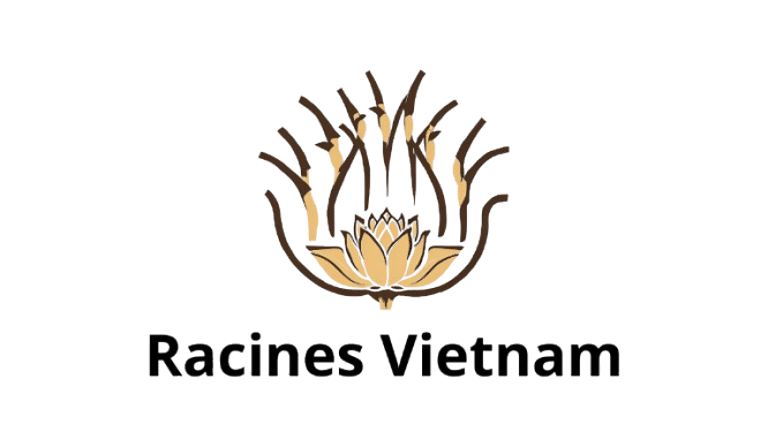“A blog created by an adopted Franco-Vietnamese for all those seeking to reconnect with their origins.”
Vietnamese adoptees moving back to Vietnam in 2025
More Vietnamese adoptees are moving back to Vietnam in 2025. Identity, family roots, healing: here’s what drives this powerful return.
5/14/20253 min read
Why More Vietnamese Adoptees Are Moving Back to Vietnam in 2025
Introduction: Coming Home After a Lifetime Away
In 2025, a growing number of adopted children, raised through international adoption, infant adoption, or private adoption, are choosing to return to Vietnam, their country of origin. For decades, they were listed as children for adoption, referred by adoption agencies, placed in adoptive families, or cared for by a foster-parent within the foster care system. Today, they return not only to visit, but to live — to reclaim identity, reconnect with their birth parents, and heal.
This return reopens the adoption process — a process that extends beyond legal finalization into the emotional space of openness, memory, and the pursuit of identity. It redefines permanency as something deeper than paperwork, rooted in truth and relationship.
From Paperwork to Personhood: A Journey of Identity
Discovering the Past, One Referral at a Time
Many Vietnamese adoptees left as newborns, often due to unplanned pregnancies, infertility, or circumstances tied to child welfare systems. They were listed as adoptable through heart gallery programs or matched via adoption centers, represented by social workers, and processed through evolving adoption laws.
Today, with the help of DNA tools, digitized home studies, and access to adoption information, adoptees are finding siblings, reuniting with kinship networks, and recovering parts of themselves once lost in translation.
"I was a referral through American adoptions. The files called me an orphan, but finding my birth mother showed me the story was never that simple."
Whether adopted through domestic adoption, foster care adoption, or international adoption, they return for wholeness, not erasure.
Advocating for Rights, Ethics, and Dignity
Although the legal process once centered adoptive parents, it left many adoptees with questions that only truth can answer. Today's adoptees advocate for:
Greater transparency in closed adoption and access to all adoption-related records
Recognition of adoptee agency within parental rights and legal frameworks
Ethical reform of the adoption process, particularly in adopting a baby and child adoption cases
Trauma-informed approaches to guardianship, supervision, and preventing abuse and neglect
They collaborate with adoption attorneys, social workers, and NGOs to ensure the next generation of adoptees is seen, heard, and supported.
Vietnam in 2025: Welcoming Its Children Home
Building Belonging Through Systems and Services
Vietnam now recognizes the emotional and cultural needs of returning adoptees. Programs include:
Record recovery support through adoption centers and adoption agencies
Legal counsel on interstate compact issues and adoption law
Emotional support for former foster children, particularly those impacted by child-abuse
A shared commitment to the best interest of the adoptee and the value of family-support
These structures reflect a nation learning to heal alongside its returning children.
Voices of the Return: Identity in Motion
Mai-Linh, 32, returned from a closed infant adoption
"I was raised by a loving family, but I grew up in silence. Reuniting with my birth father and sibling made me feel like my story finally had a beginning."
Julien, former foster child adopted by a single parent
"I knew how to survive in systems, but not how to feel. Vietnam gave me back what the foster care system took: narrative, community, and grounding."
The Lifelong Impact of Adoption
Beyond Finalization: The Emotional and Legal Landscape
Returning adoptees navigate:
Lingering trauma from abuse and neglect, secrecy, and institutionalization
Legal confusion due to interstate placement or incomplete adoption service trails
Financial needs related to relocation, including eligibility for adoption tax credit and tax-credit support
A lifelong search for nurturing, cultural belonging, and personal justice
Yet within this complexity, they build strength and clarity, leading change for every child still in care.
From Being Adopted to Becoming Advocates
Vietnamese adoptees now take active roles in:
Educating families on how to adopt with ethics and empathy
Correcting misconceptions about adopting children, transracial identity, and fostering
Advocating for systemic change in adoption and foster care policies
Elevating voices of children in children and youth programs and supporting families for children around the world
They are changing the narrative from isolation to action, from secrecy to visibility.
Conclusion: A Return to Truth
Coming home is not a return to the past — it's the act of claiming a future. Vietnamese adoptees are not just returning to Vietnam; they are returning to themselves, to relationships once broken, and to a deeper understanding of children and families.
Their journeys illuminate what every adoption agency should know, what every adoptive parent should hear, and what every adopted child should feel: that they are whole, valid, and deserving of the full truth.
FAQ – Returning to Vietnam as an Adoptee
Can I find my birth family after a closed or international adoption?
Yes. DNA tools, archived home-study files, and help from adoption centers and social workers enable many to reconnect.
What support is available in Vietnam?
Vietnam offers adoption support, legal guidance, cultural reintegration, and trauma-informed counseling through state and NGO partnerships.
Can I adopt a child after being adopted myself?
Yes. Many adoptees are now adopting children, mentoring expectant parents, and improving policies across adoption and foster care.
What financial or legal resources exist?
Look into adoption tax credit, adoption-related immigration status, and interstate compact frameworks for return and residency.
How can I advocate for change?
Start by sharing your story, joining family-support initiatives, or collaborating with adoption services to ensure ethical treatment for adoptable children worldwide.
Main Menu:
Explorations:
Resources & Immersive Content
Community & Support
Legal & Languages
Contact & Social Networks
✉️ contact@racinesvietnam.com
📱 Instagram | Facebook | YouTube
©️ Copyright
© 2025 RacinesVietnam.com — Tous droits réservés
Site indépendant, créé sans code, hébergé par Hostinger
